MercoPress. South Atlantic News Agency
Tag: International Monetary Fund
-
Thursday, September 13th 2018 - 10:34 UTC
Argentine labor unions and social groups protest austerity measures in Buenos Aires City
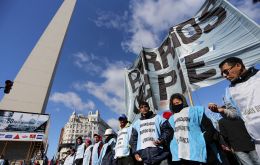
Labor unions and social groups blocked streets in downtown Buenos Aires on Wednesday, with more marches planned over the days ahead over austerity measures proposed by the government and backed by the International Monetary Fund. Protesters are angry about the belt-tightening policies, which are cutting services to low-income Argentines already walloped by inflation of 31 percent and climbing.
-
Wednesday, September 12th 2018 - 08:55 UTC
Argentina's central bank keeps key interest rate at 60%
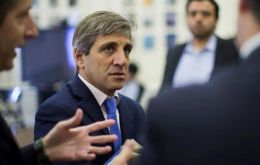
Argentina's central bank kept its key interest rate on Wednesday at 60%, one of the highest in the world, following a surprise hike two weeks ago after the peso plunged. Central bank officials said in a statement that inflation accelerated in August and continues to do so September, citing high-frequency data.
-
Tuesday, September 11th 2018 - 09:12 UTC
Argentine equities and Peso lose ground on Monday: IMF and budget concerns
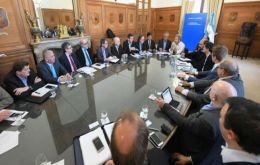
Argentine equities and the peso both lost ground on Monday as analysts said intervention in the foreign exchange market by the nation's central bank may prove less successful than originally hoped.
-
Tuesday, September 11th 2018 - 08:13 UTC
Argentina raises 17% price of biodiesel used in domestic fuel mixes
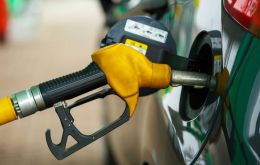
Argentina raised the price of biodiesel used in domestic fuel mixes in response to a sharp devaluation in the Peso currency and new taxes on primary exports, the government said in its official gazette on Monday.
-
Friday, September 7th 2018 - 09:18 UTC
IMF wants to wrap up talks to financially support Argentina “as rapidly as possible”
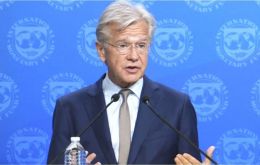
The International Monetary Fund said on Thursday it aimed to wrap up talks to “strengthen” a US$ 50 billion backup financing deal with Argentina “as rapidly as possible,” as the country's peso and stocks climbed for a second straight day.
-
Thursday, September 6th 2018 - 08:40 UTC
IMF receptive to Argentina's request, but now Macri must implement the hard austerity program
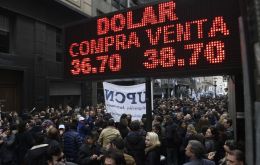
Argentina’s economy minister sounded upbeat on Wednesday about clinching a new deal with the International Monetary Fund after two days of talks in Washington, and said had sought U.S. support for securing approval from the IMF’s board.
-
Wednesday, September 5th 2018 - 08:16 UTC
Argentine Peso slid another 2.18% and the Central bank sold US$ 350 million in reserves
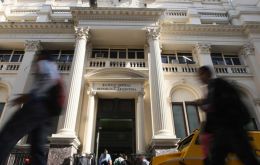
Argentina’s peso slid further on Tuesday as investors reacted with skepticism to president Mauricio Macri’s plans. Many worry he will not be able to push reforms through a restive Congress amid growing frustration on the streets of Buenos Aires.
-
Tuesday, September 4th 2018 - 08:41 UTC
Brazil's Real and Argentina's Peso slumped on Monday
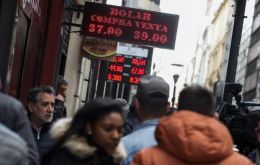
The Brazilian Real slumped on Monday as mounting concerns over this year's presidential election added to global risk aversion, while the Argentine peso extended a recent sell-off that also spread into stock markets in Latin America.
-
Monday, September 3rd 2018 - 19:17 UTC
Macri admits the seriousness of the situation and Dujovne is off to meet with IMF

President Mauricio Macri unveiled plans on Monday to raise export taxes on grains and slash the number of government ministries in a bid to balance its budget next year, as Argentina seeks a deal with the IMF to accelerate a US$ 50 billion standby loan program.
-
Saturday, September 1st 2018 - 09:27 UTC
S&P places Argentina credit ratings under review
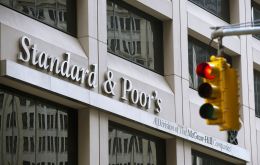
S&P said on Friday it may lower Argentina's long-term foreign currency rating from its current B+ grade, which is four notches below investment grade -- and on par with Turkey, Greece and Fiji. The ratings company cited the risk of worsening creditworthiness and exchange rate volatility as potential threats to the economic adjustment measures undertaken by Mauricio Macri’s administration.
